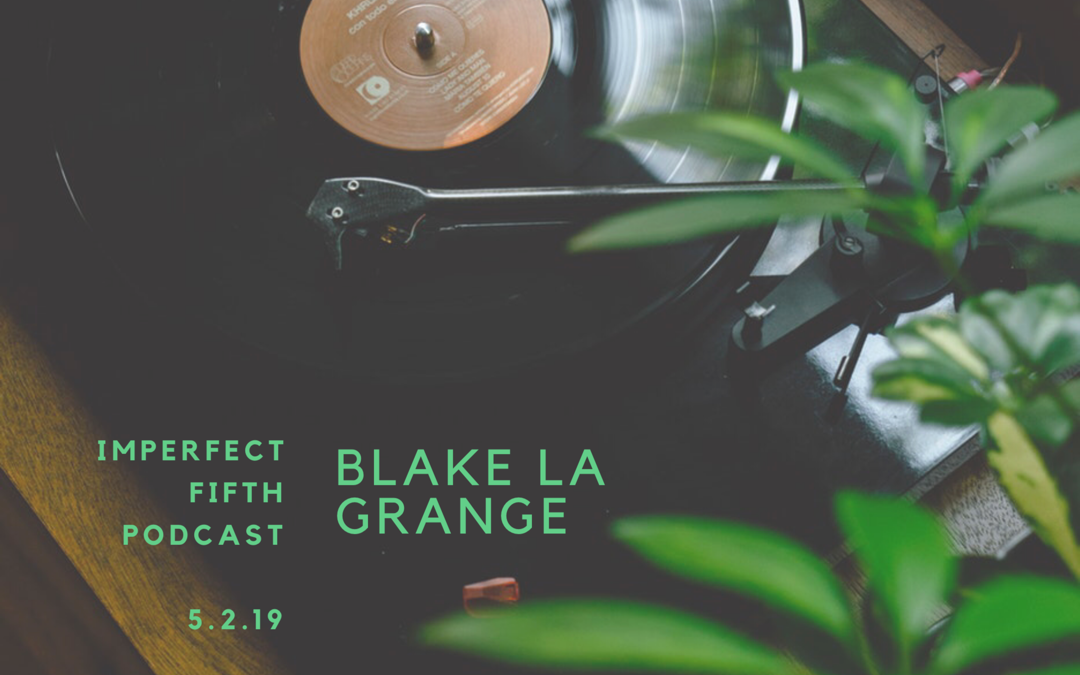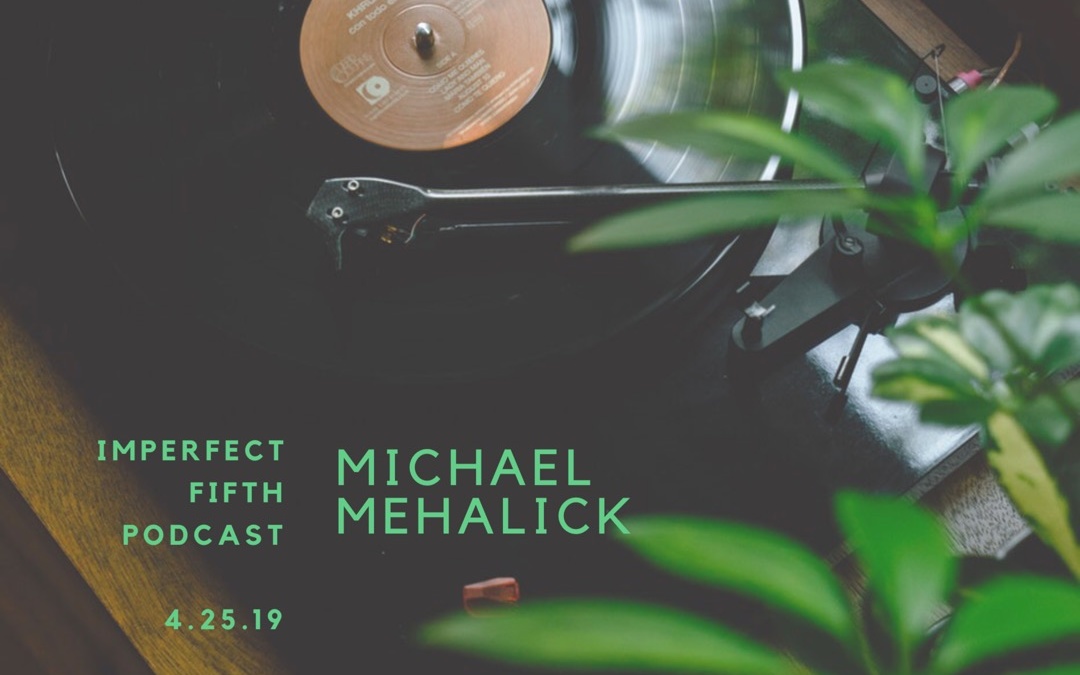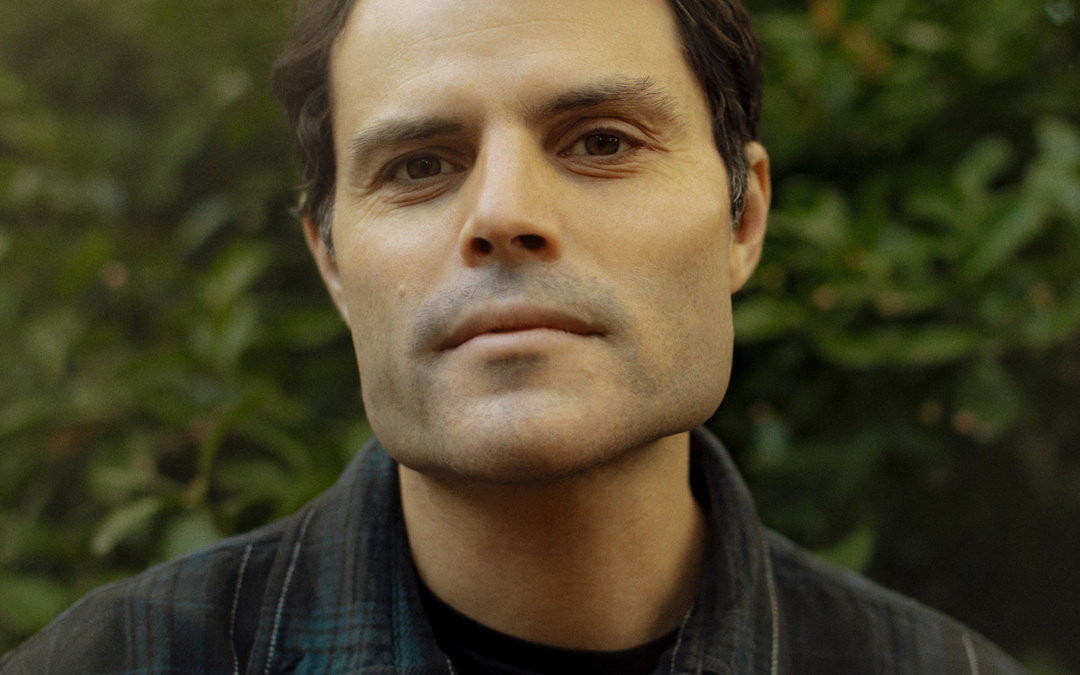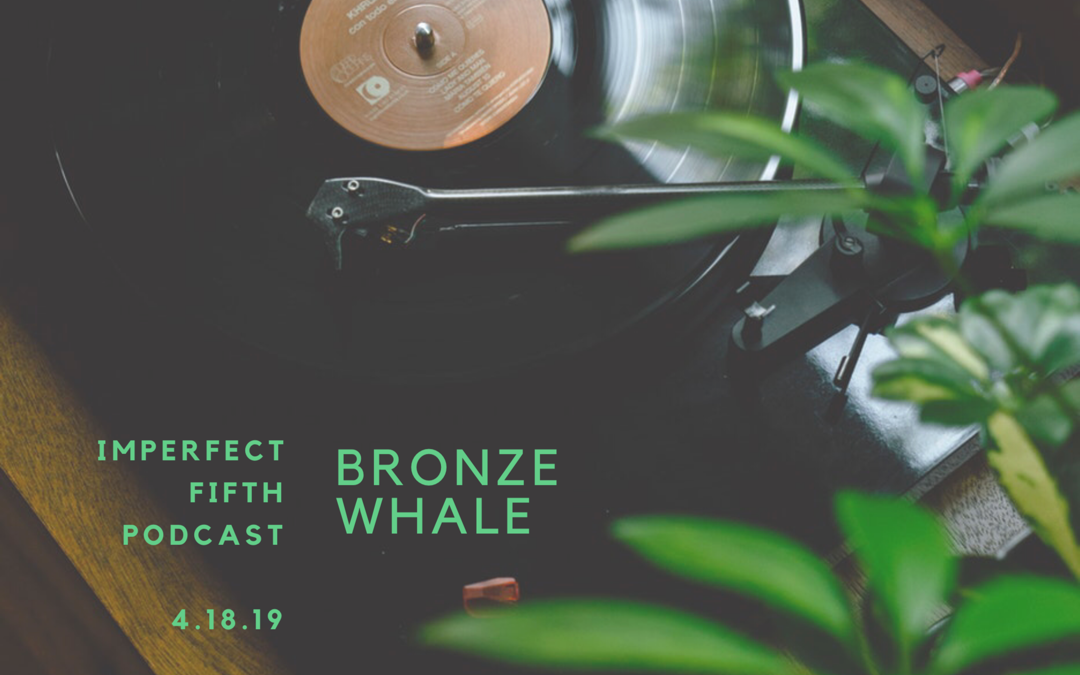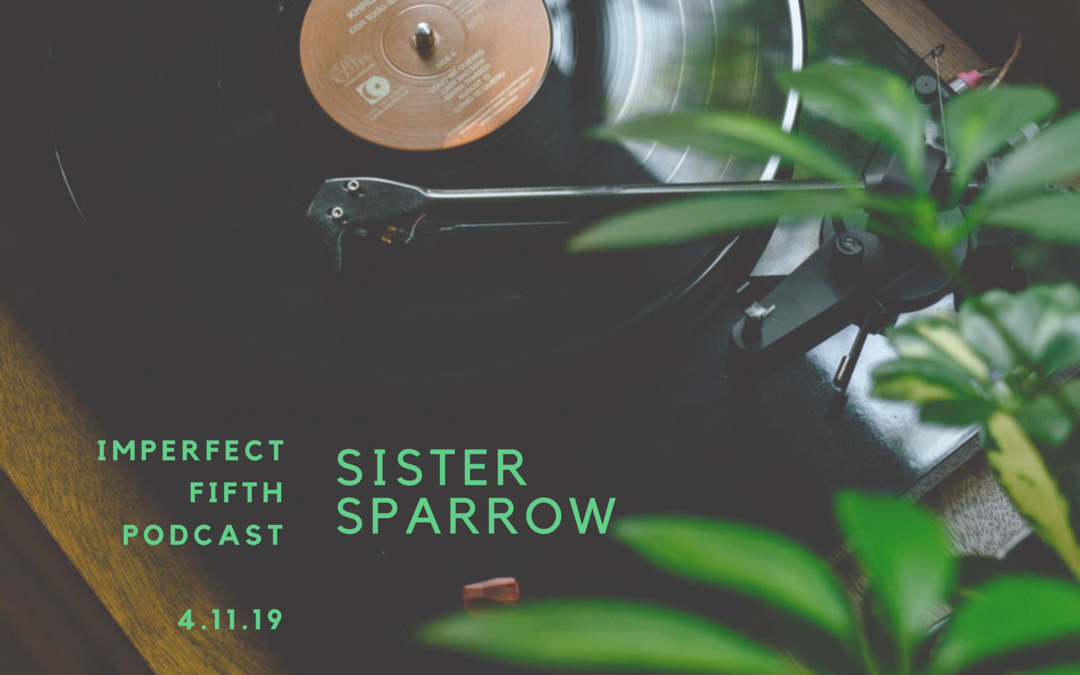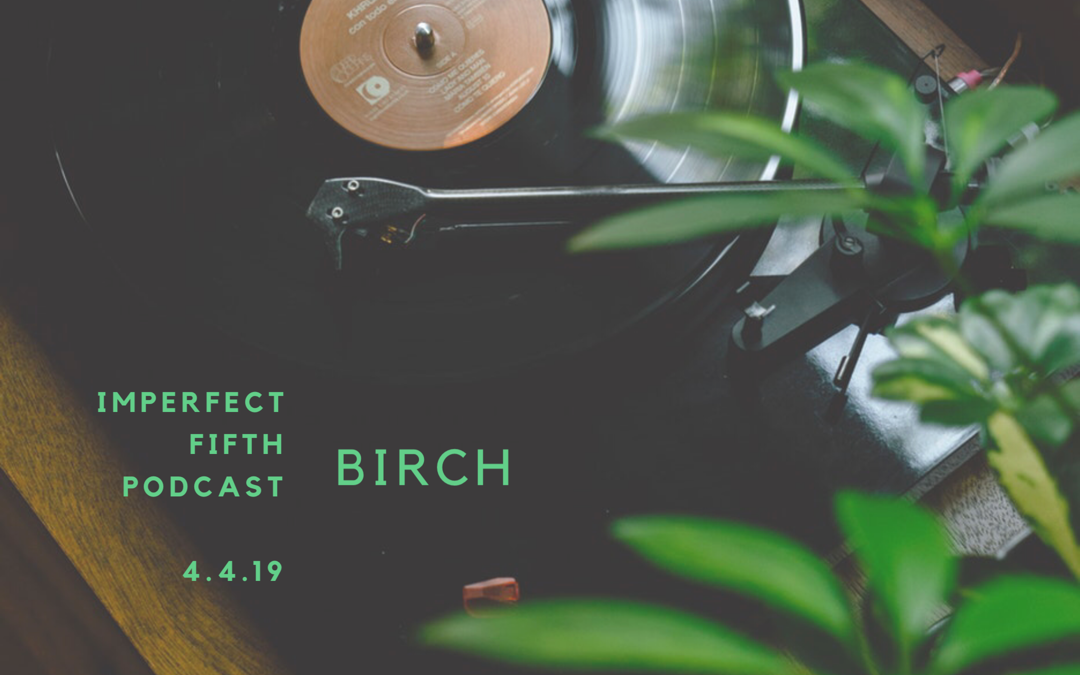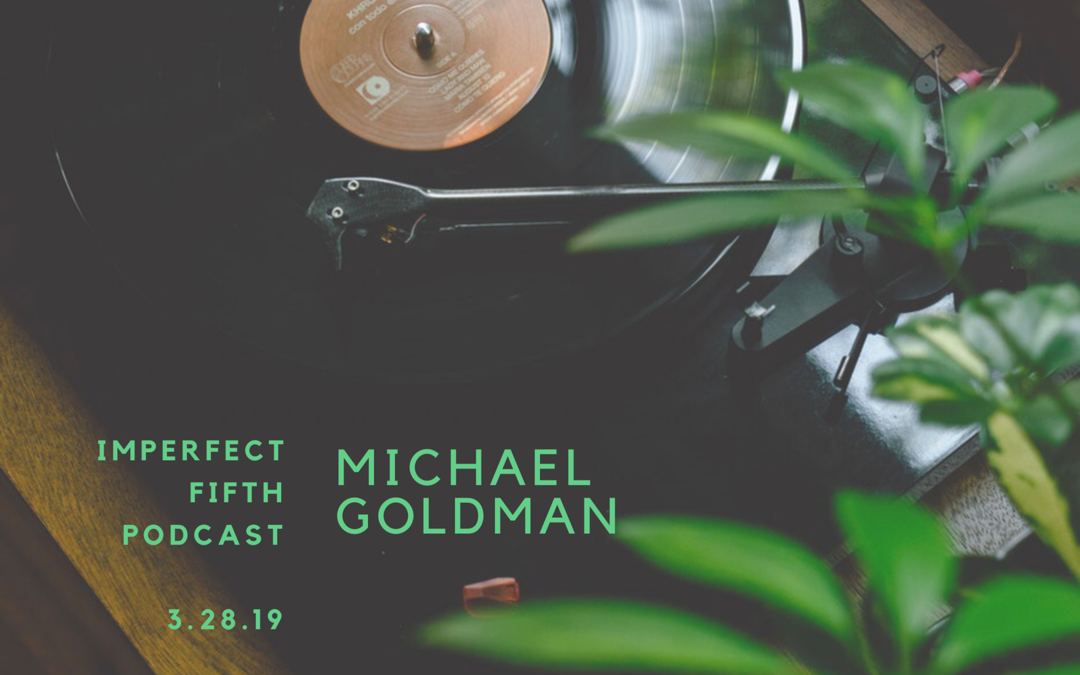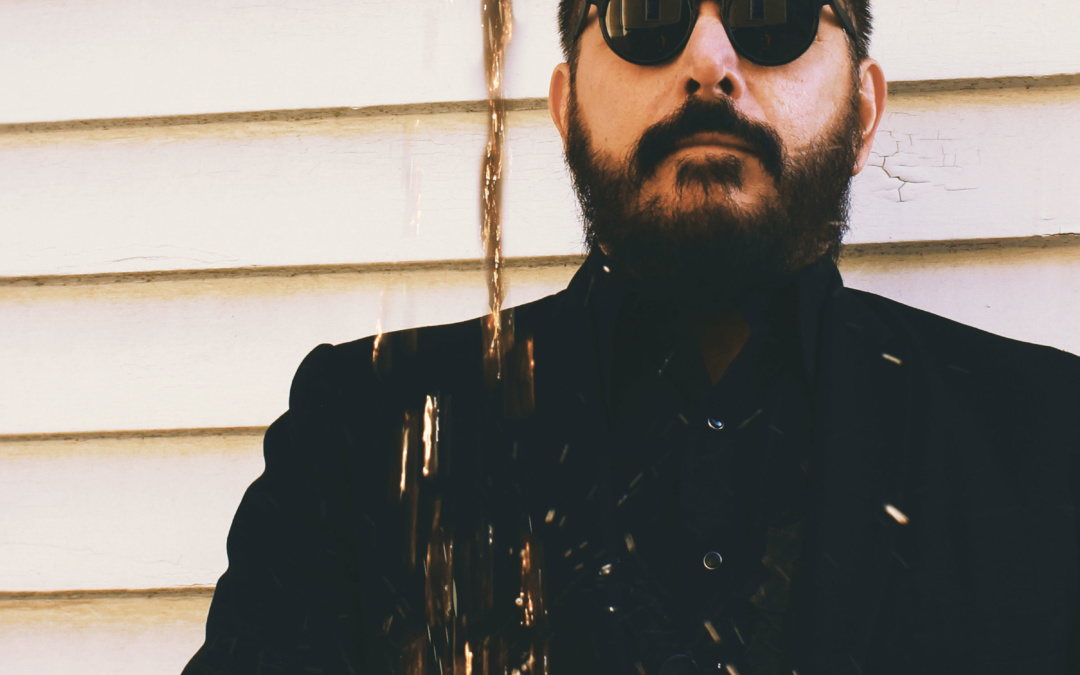
by Meredith Schneider | May 9, 2019 | 5 to 7
Today, we sit down with Nate Sirotta. He is the founder of – and digital publicist at – Impulse Artists, a boutique digital marketing and publicity agency based in Portland and Los Angeles. Since he lives in the Pacific Northwest, I tried to talk Sasquatch. But it was more fun catching up and delving into his work, to be honest.
0:00 Intro
0:11 EZVisibility.com
0:22 Dbl-take.com
0:33 imperfectfifth.com/merch
1:10 Nate Sirotta intro – Impulse Artists
1:49 Kid Bloom
2:15 The Dumes
2:39 Yip Deceiver
4:12 Huey Lewis & The News
5:36 Warped Tour
12:14 Portland
23:25 Sasquatch
26:02 Flying saucers

by Meredith Schneider | May 2, 2019 | 5 to 7
On today’s episode, we sit down with someone I have known for almost a decade. (If you didn’t know, I may mention it too many times.) Blake La Grange is the Owner and Founder at Mastering.com. He is also the CEO & Founder at Mercury Mastering LLC and has worked with talents of all kinds. He and his family recently made the move to New York for the next chapter of their journey, and it was a pleasure to catch up.
0:00 Intro
0:11 EZVisibility.com
0:22 Dbl-take.com
0:33 imperfectfifth.com/merch
0:46 Blake La Grange Intro
1:39 Led Zeppelin “One”
4:06 P.O.D. “Murdered Love”
7:48 Mercury Mastering
11:43 Mastering.com
16:15 Hanson
19:52 Work/Life after baby
24:09 Sasquatch
28:14 Alien Contact
31:06 Drake’s Equation
34:56 Envy
39:08 Atlas Shrugged

by Meredith Schneider | Apr 25, 2019 | 5 to 7
Today, we sit down for a lengthy chat with Michael Mehalick, who is a music industry extraordinaire. He’s the Editor in Chief at Speak Into My Good Eye, the Owner and CEO of Good Eye Records, a freelance writer, and music marketer. Essentially, he IS the industry and our time together reflects that.
0:00 Intro
0:11 EZVisibility.com
0:22 Dbl-take.com
0:33 imperfectfifth.com/merch
0:46 Michael Mehalick intro
1:10 Tight knit industry
4:03 Rock n’ Roll Hall of Fame
7:15 Speak Into My Good Eye
9:17 Good Eye Records
11:36 Cathedral Bells
13:00 Makeunder
13:13 Moniker
13:30 Quiet Kids
13:33 Looms
14:24 Carriers
15:22 Aliens
18:27 Captain America
20:10 Marvel
20:25 Disney
22:18 Home on The Range
29:31 “Lead with integrity”
35:32 @GoodEyeRecords
36:50 Michael@GoodEyeRecords.com

by Phlis | Apr 25, 2019 | 5 to 7
Songwriter and composer Gaby Alter released his latest EP under the moniker Yes Gabriel on Friday, April 19th. His career thus far has included creating music for a variety of placement opportunities, namely Off Broadway musicals, independent films, PBS, NPR, and even Disney. With this new work comes some pretty incredible lyricism, and stunning influence peeks through as well. Read on for more in our interview with Alter.
You have a lot of musical experience, what part of your musical past brings you the fondest memories?
In my late teens and twenties, my friends and I put on a string of rock musicals in a small theatre space under a pizza parlour in Berkeley, California. We would write shows about aliens and zombies and superheroes and perform them while people upstairs ordered pizza and played video games. I got to hear songs I wrote sung by some really talented people, and the audiences–a lot of whom were our parents and friends from high school and their friends–loved the shows. That’s really when I started to write songs more seriously.
Your latest EP was recorded in a friends front rooms, why did you never go into the studio?
Actually it was recorded mostly in my own living room–and full disclosure, I did go to a studio one day to track a string quartet. But to answer the gist of your question, I started out thinking I was making demos that I would later re-record in a studio. At some point, I realized there was an intimacy to the songs which I was capturing with my home recordings, so I felt I didn’t need that extra step. A lot of that came down to what needed to be recorded: most of the songs are built around acoustic guitar and piano parts, which home recording captures pretty well. Drums would have required a studio because they are too complicated to record on your own, but luckily, there were no real drum parts on the album, just loops. Also, recording at home allowed me to avoid making choices under the pressure of time and money.
You had no pre-determined path for the album, it just formed. What does this approach bring to the album in your mind?
Stephen King says not to outline a story ahead of time, but instead to excavate it like a fossil. That way you get something that’s the most truthful and interesting, because you discover the story as you write it. So hopefully my putting one foot in front of the other, rather than having a road mapped out first, helps the listener feel like these songs have an organic cohesion with each other and within themselves.
What elements of musicals lay within your debut EP?
When writing lyrics for a musical, I often use specific details. They make the character singing the lyrics seem like a specific person instead of a generic one. I use those kinds of details in my songs on this album. On “Fall Asleep”, for instance: “Do you still have my shirt/the one with faded letters that didn’t quite fit?/You used to wear it when we went to bed and I’d watch you fall asleep in it.” The listener can picture those specific, visual, intimate details of a relationship, and then hopefully it becomes more real for them.
There are other kinds of story telling I use in the lyrics which I use in musical writing. Like in “Dear To Me”, where the song starts with the beginning of a relationship and ends with what happens afterwards, describing moments and details throughout. It’s a story with a clear beginning, middle and end. Musicals songs often have journeys within them, where a character goes from one place to another emotionally, physically or both. Similarly, these songs trace a journey from falling in love to losing love, often within each song.
That said, these songs don’t sound like my theatre songs musically. The arrangements and mood are quieter, more internal. They’re meant to be listened to on headphones or in your car rather than in a theatre.
There are a lot of details in your lyrics, why put so much details into your lyrics when so many artists keep lyrics simple?
I think I answered that in my last response, so I won’t repeat myself. 🙂
To you why do the elements of folk, electronica and chamber pop work well for you?
The organic sounds of folk and the artificial sounds of electronica sounds go well together because they offer a strong and satisfying contrast. Electronica adds surprise to folk, and can limit the sentimentality or conventionality of a purely acoustic folk sound. I’m drawn to those types of sounds and to artists that combine them–Sufjan Stevens, for instance, is a big influence. And chamber pop – adding orchestral instruments to a pop-style song – is obviously nothing new. The Beach Boys and Beatles did it back in the 60s. I love how much richness orchestral instruments bring to an arrangement. They’re real and alive and have a lot of emotional power.
In your mind what would be the perfect place and time to listen to your new EP?
Driving in the evening when the sky is orange, or late at night. I think the subway, or an airplane would work equally well.
Of all the songs on your debut EP as Yes Gabriel, which song is the most you and why?
I love all my children equally. 🙂 But seriously, this is a hard one to answer. I think they are all very much aspects of me, or who I was when I was wrestling with the things I sing about on the album: longing for someone, trying to understand what love meant when a relationship is over.
What do you feel has been the definitive milestones in your career as Yes Gabriel?
I sent the EP to a friend of mine before it was released, and he literally woke me up at 3 am calling from the west coast to tell me how much he thought it worked. I can’t imagine a better response to the album than that. It let me know that it was really landing emotionally.
What makes Friday a good day to release your EP? Why was April 19th a good time?
I waited too long for certain windows, like late or early in the year, and then I heard March is a bad month to release unless you’re playing SXSW. Also, it’s a dark-hued, internal album, more appropriate to colder weather, so any later in the year and it would seem a little out of place.
Thank you so much for giving Imperfect Fifth this interview, is there anything you would like to add?
Just a small plug for Bandcamp, where you can find my album. They are very fair to artists and support the discovery of new music.
Thanks very much for interviewing me!
Keep up with Yes Gabriel here.

by Meredith Schneider | Apr 18, 2019 | 5 to 7, Featured
On today’s episode, we sit down with electronic musical duo Bronze Whale to talk about their evolution in the industry and the impact they’ve made on their genre. Of course we also carved in some space to talk about Sasquatch and other creatures of myth.
0:00 Intro
0:11 EZVisibility.com
0:22 Dbl-take.com
0:33 imperfectfifth.com/merch
1:03 Aaron Jaques Intro
1:52 Benny Alley Intro
2:49 Beatles, Chopin
3:45 John Denver
5:05 Turntable.FM
7:29 Austin, TX
9:08 Plush
10:53 “Cruising”
16:41 The Shape of Things
19:46 SPLICE sample pack
21:52 Sasquatch
25:34 Aliens
27:37 Flat earth theory vs. Hollow earth
30:02 Alex Jones
___
Keep up with Bronze Whale here.

by Meredith Schneider | Apr 16, 2019 | 5 to 7, Featured
Today, we get the unique pleasure of sitting down with Arleigh Kincheloe, the brainchild of Sister Sparrow & The Dirty Birds. We talk her latest solo album GOLD, growing up in a musical home, and family. She was so much fun to speak with! Trust me, you don’t want to miss this one.
0:00 Intro
0:11 EZVisibility.com
0:22 Dbl-take.com
0:33 imperfectfifth.com/merch
1:02 Arleigh Kincheloe Intro
2:14 Emmy Lou Harris | Bonnie Raitt
5:04 Growing up in a musical home
6:31 Tour life
8:27 Pre show rituals
12:13 GOLD recording process
16:31 “You’re My Party”
17:51 “Ghost”
19:48 Superpowers
23:04 Spring Tour
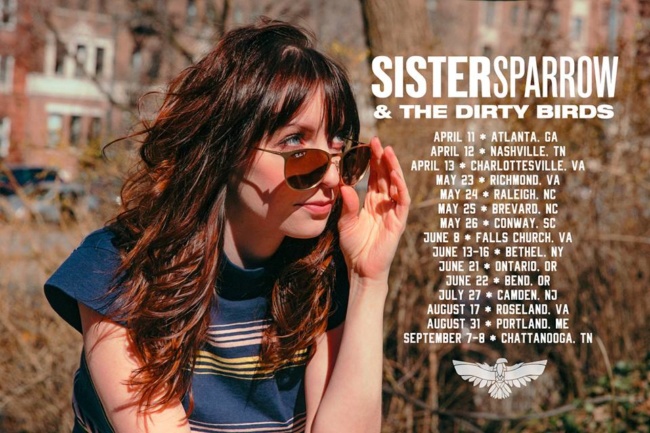
Keep up with Sister Sparrow here.

by Meredith Schneider | Apr 4, 2019 | 5 to 7
Today, we sit down with incredible feminist indie-pop artist Michelle Birsky – the brainchild of BIRCH – to chat about her new album release, touching on points of sexism and the empowerment she stirs up in her music.
Today, we sit down with incredible feminist indie-pop artist Michelle Birsky – the brainchild of BIRCH – to chat about her new album release, touching on points of sexism and the empowerment she stirs up in her music. We also get deep into spiritual practice, and learn a bit more about getting in touch with ourselves.
0:00 Intro
0:11 EZVisibility.com
0:22 Dbl-take.com
0:33 imperfectfifth.com/merch
1:36 Spice Girls
2:31 Spelling Lessons
6:19 Normalizing stigma
9:15 Reiki/energy work
11:48 Spirituality whitewashing
17:10 Guided Meditations
21:43 Rituals
24:12 Aliens
27:25 Gracie & Rachel
29:44 April 11 Album Release Show
30:21 Asking For It
femme.one is out April 5th. Celebrate BIRCH’s CD release show on April 11th at Union Pool in Brooklyn with Rodes Rollins and Gold Child. More information is available here.

by Meredith Schneider | Mar 28, 2019 | 5 to 7, Featured
Today, we sit down with Los Angeles-based musician Michael Goldman, who spearheads his own musical project NONA while being the bassist for AWOLNATION and hosting his own podcast called In The Band.
0:00 Intro
0:11 EZVisibility.com
0:22 Dbl-take.com
0:33 imperfectfifth.com/merch
1:03 Michael Goldman intro
1:46 Royal’s in Louisville
2:52 Chasing Kings
4:02 Crosby, Stills, & Nash and The Beatles
6:25 Volleyball
8:02 NONA
10:52 In The Band podcast
15:20 “I’m Not Trying” {{intro to podcast}}
16:42 Upcoming album
19:20 AWOLNATION
22:46 Conspiracy Theories
28:04 Aliens
31:05 Sasquatch
32:35 Rugrats
34:50 Family

by Phlis | Mar 28, 2019 | 5 to 7
On April 5th, Drunken Prayer (Morgan Geer) will release his latest full-length, Cordelia Elsewhere. We took a few minutes to chat with him about his evolution as an artist, superstition, and the new album at length. Check it out below!
___
For everyone in Europe we find it hard to grasp the sheer size of the US, as a touring musician when you do a coast to coast tour of the USA just how long does it take and how does the touring experience differ from other countries?
It takes about 5 days to comfortably drive from coast to coast. I’ll be playing maybe 10 shows on the way to the west coast. It’ll take me about 3 weeks to get to LA from Asheville, North Carolina. In that time I’ll be stop in Austin and Albuquerque to rehearse two different groups of musicians for local shows. I could do it faster but on long tours like this it keeps me sane to stop and watch a few sunsets.
You will soon be releasing Cordelia Elsewhere, tell us a little bit about your fifth album.
I had a lot of music but the lyrics were a little shaky. After the 2016 presidential election I found a voice for the record though. This is the closest to a concept record as I’ve done in that regard. Some songs came very quickly, others, like “Rubble and Dust”, required a little thought. I go down a lot of rabbit holes lyrically and have to reel myself in sometimes.
Superstition forms part of the background behind Cordelia Elsewhere, why did you choose superstition as part of the basis of the album?
I’m not sure I consciously chose any superstitious themes. I brood on what lies behind the veil and the unexplained so it’s natural that what I write about. Some of those rabbit holes are filled with me writing without thinking and reflecting afterwards.
There are certain places in the world where superstition is something very big and they truly believe the tales, do you have a certain favourite superstition?
I think wet bread is bad luck.
I come from an Irish Catholic family – apparently you’re supposed to bury a statue of St. Joseph upside down in your yard, under the for sale sign, if you want to sell your house.
They say you should never meet your heroes, but what was it like when you met one of yours Tom Waits?
I wanted to throw up. It was surreal because it came at a time when I was listening to him more than usual. Whenever we talked I would walk away nauseous. I’ll never forget the way my name sounded coming out of his mouth. It was a peculiar feeling.
Your music keeps to them authentic American roots, what is the importance to you of keeping those roots imbedded in your music?
I don’t know that it is that important. Neither is speaking English but it’s what I know. Coming from a musical family that veers toward traditional jazz, country and blues, it’s a familiar voice that comes naturally. I try to stay insulated without isolation. It keeps me open but grounded. When I allow myself to follow every whim I turn into a gross mess.
Why have you decided to have the homesick theme in some of your songs, what makes you so good at conveying these feelings?
I grew up a little lonely sometimes. I was the only child of a single working mother and we moved around a lot. That left me with competing feelings of restlessness and a desire for a forever home. I identify with sad songs.
Why do you feel that Cordelia Elsewhere is your strongest album as Drunken Prayer to date?
It was recorded by a gifted engineer, Brian Landrum, and mixed by the great Mitch Easter from Let’s Active. We played the songs one after the next in a one room backyard studio with only necessary overdubs. The songs on this one came pretty easily all in all as well. That’s usually a decent barometer. When I have to labor too hard over something, it usually sounds fussy. I don’t think it’s a cluttered record.
The whole way in which artists make music and how people buy and listen to music has changed drastically technologically both for the good and the bad. Do you as an artist embrace that technology or do you prefer the older ways, and why?
More and more songs are heard as singles, separated from the album, like the early 45s. That idea has kind of come full circle now that you can upload singles directly to online distributors like CDBaby. I like good sequencing so I tend to buy entire albums, usually vinyl records. Not because they sound better – I’d never know the difference on my cheap system – but I like the machinery and the tactile quality of 12” records and the big art.
Also with the technology comes freedom for you as an artist, long gone is the time when a record label tells you what to do. What do you think are the negatives of this on the music industry as a whole?
There’s a lot more noise to sift through. I use streaming services, especially on tour, but sometimes listening to music in my bubble or personalized playlists gets old. A good radio station is a curator you can trust.
Every place has a different feeling musically, but yet your music is American. Are there certain songs which musically it could come from a certain place in America and if so which songs?
“Four Leaf Clover” started off more as a cajun song. It’s some of the prettiest music there is.
“Rubble and Dust” reminds me of the desert even though it name drops Bend, Oregon. It ended up with what I’d consider a Topanga Canyon sound. That was a happy accident.
Your father and your mother father played Jazz and Dixieland, how has this affected you musically?
For as many generations as anyone can recall, everyone on my mother’s side was some sort of musician. So being a musician of any level of success was an honorable pursuit. There was a point when I thought about maybe going into theology or law but it seemed wrong not to follow the musical wind at my back.
Thank you so much for giving Imperfect Fifth this interview, anything you would like to add?
If you go down to the woods today, you better not go alone.
___
Keep up with Drunken Prayer here.


